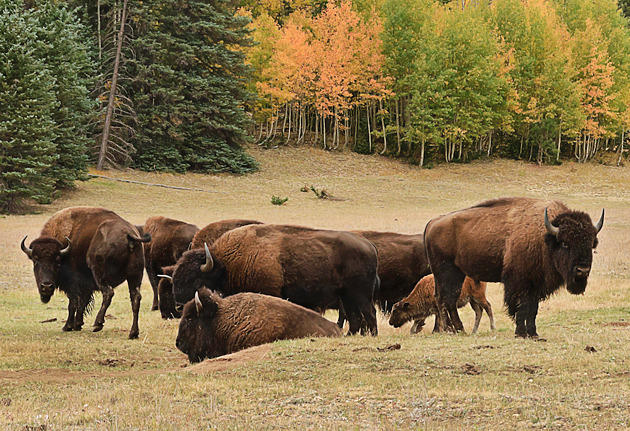As Cronkite News reports, Arizona legislators believe bison are overgrazing in the Grand Canyon, threatening plants, waterways, and wildlife in the national park. Because of this, state lawmakers recently proposed the Grand Canyon Bison Management Act, which, if passed, would allow sportsmen, upon receiving a special permit from the state, permission to hunt the hooved beasts in the park, where pursuing game is otherwise federally prohibited:
Sponsors included both Arizona senators and a bipartisan majority of the state’s House delegation, which said in a joint news release that a hunt is needed to control “the exploding bison population that continues to damage and overgraze the Grand Canyon’s natural resources.”
“For more than a decade, the Park Service has tried numerous methods to remove the bison with little success,” their statement said.
Bison, which are native to the West but not the Grand Canyon, have few predators in the park, so their numbers have soared since they migrated to the area in late 1990s. Officials speculate that lethal force may now be the only way to effectively remove the animals and protect the park’s natural resources.
AZ Central notes that the bison in the Grand Canyon are not American bison, which once widely grazed the plains, though they bear a strong resemblance to them: They are cattle crossbreeds that graze more aggressively than their biological ancestors.
The piece also explores the costs of removing species from federal property, citing that the US Departments of Agriculture and Interior spend approximately $100 million a year commissioning private sharpshooters to eliminate unwanted species from public lands.
Hunters, on the other hand, offer a cost-effective alternative:
Sportsmen are the most skilled and knowledgeable wildlife advocates, and they are more than ready to lend a hand without asking for a dime of tax money in compensation.
Outside of Grand Canyon National Park, the bison hunt is among the most coveted Arizona hunting opportunities. Only a handful of tags are issued annually at a cost of more than $1,000 each. It would not take much to rally volunteers to track the bison hiding inside national park borders where hunting is restricted. [stet]
Critics of the bill believe state legislators shouldn’t intervene and would rather let the park service resolve the issue, as Sandy Barr, of the local Sierra Club chapter, told Cronkite News:
The National Park Service is in the process of developing and implementing a plan to address the bison-hybrids in Grand Canyon National Park and the damage they are causing there. This bill short-circuits that process and is disrespectful of the all of the people who have been working on this issue for years.
Likewise, a representative from the National Parks Conservation Association said using “unsupervised amateur hunting” is not a suitable way to handle the problem—though it’s unclear why the organization assumes that the hunting would be amateur: Similar animal-removal programs around the country have required volunteers to undergo extensive training before hunting on public land. Likewise, the organization doesn’t address that hunting as been a successful tool for wildlife management for more than 100 years.
Whether you’d ever shoot a bison or not, the bill stirs interesting debate about the effects banning hunting can have on an ecosystem. Critics of the bill admit that bison pose a substantial threat to the Grand Canyon, but given American conservation’s storied relationship with hunting, their reservations remain largely unfounded. —JR Sullivan

